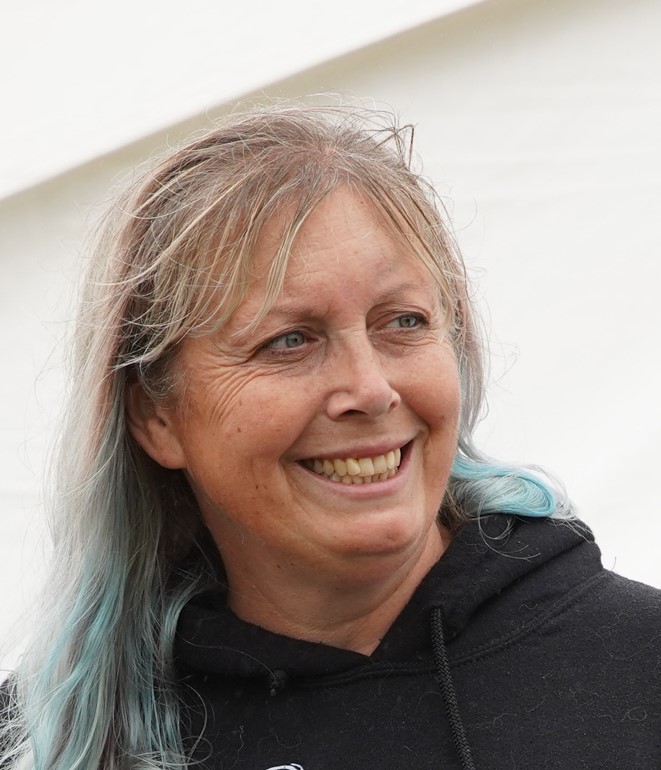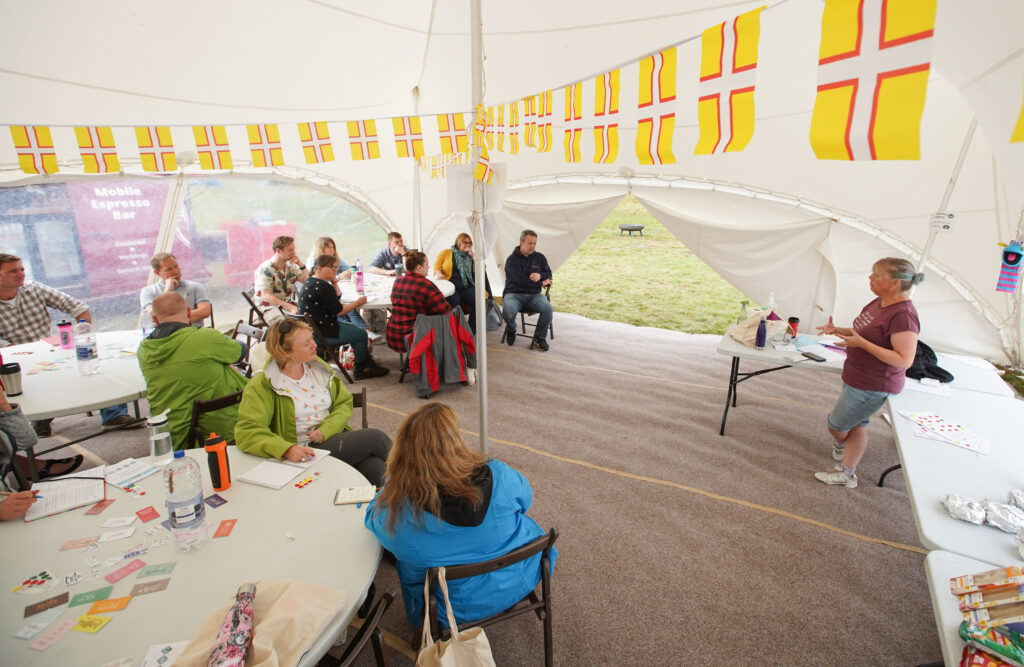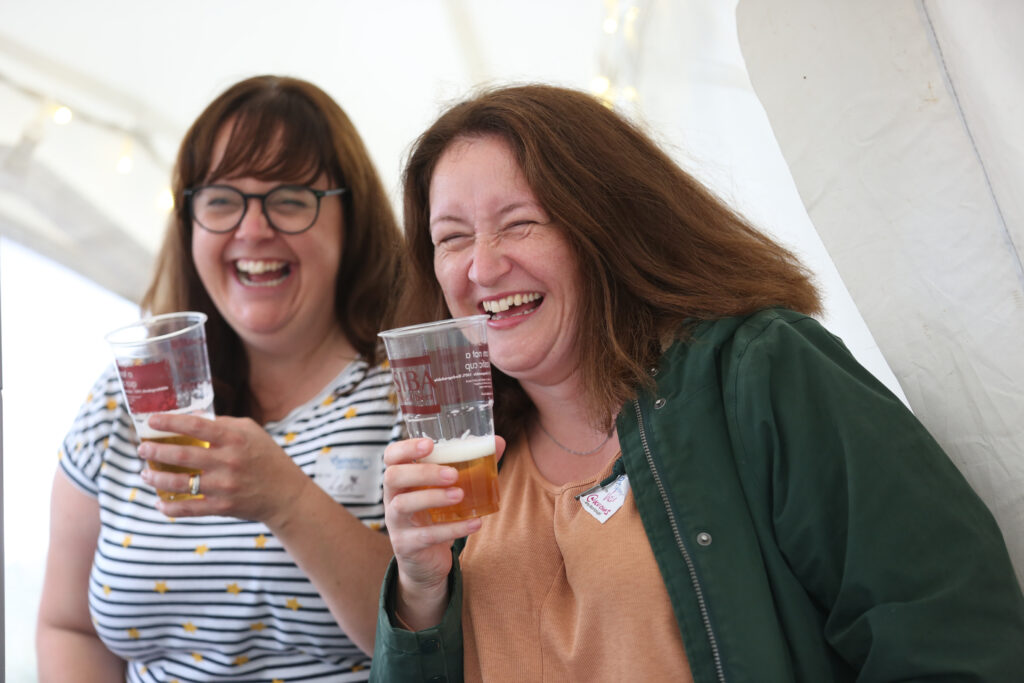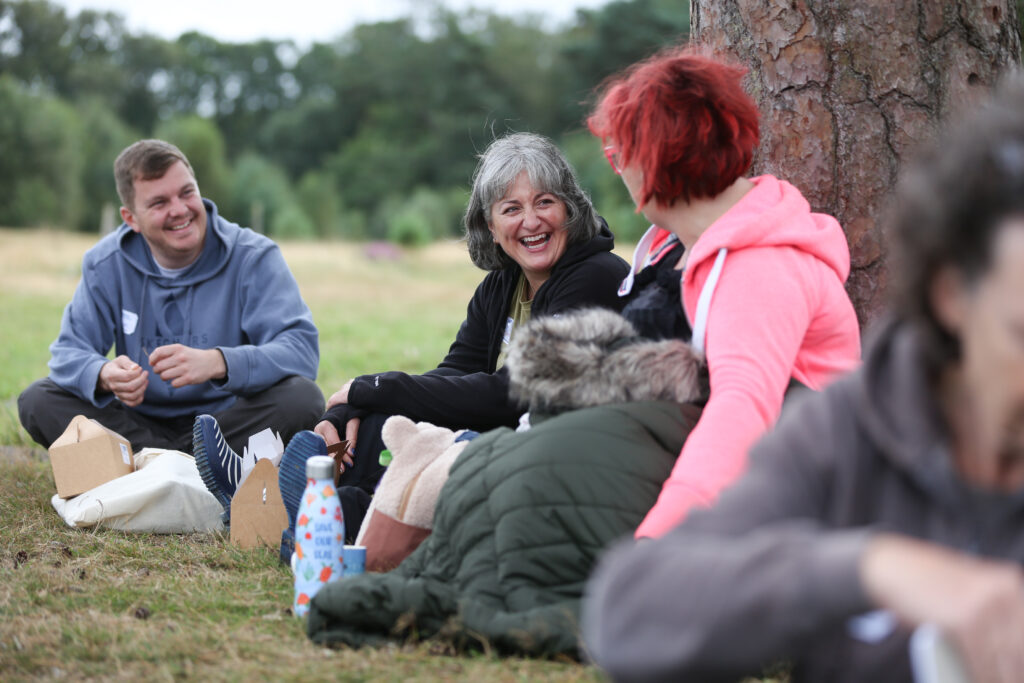 By Jill Spurr
By Jill Spurr
If you attended my workshop at Comms Unplugged 2021, you know that I’ve been looking more deeply into the science of happiness. Curiosity can be overlooked as a quality, even seen as a negative, but I often find myself going off into the rabbit warren of information and coming out with a new conclusion or two.
That’s why I can say to you now that I know the secret of Comms Unplugged, why it is uniquely successful and successfully unique.
I went off down this particular line of enquiry because of a question I was asked in my workshop. I was talking about the Dopamine-Seeking Reward Loop that is social media (interactions with your posts cause a Dopamine hit in your brain, which acts like an operant conditioner, encouraging you to repeat the behaviour. The more you rant on social media, the more you rant on social media!). Someone asked if interacting with an unhappy social media post wasn’t the same as comforting someone who is upset – a really good question. While social media releases Dopamine, a comforting hug releases Oxytocin, a different type of happiness chemical altogether with an entirely different effect.
As I was reflecting on my workshop – and going a little bit Imposter, if I’m honest (“I can’t believe I answered that question…”) – I noticed something about Comms Unplugged, about Dopamine and Oxytocin, and a couple of their mates. And I realised, I’d cracked the secret of the field’s charm.
Come closer while I whisper, because it’s not magic… it’s science. Comms Unplugged has tapped into the science of happiness like no other conference can do. The only thing I have ever seen remotely comparable is VetFest, the brainchild of Prof Noel Fitzpatrick, or Supervet as you may know him. It shares all the same key ingredients of Unplugged, and the same ethos of learning linked with wellbeing for a stressed sector. The same outdoor-style venue, same live music. Even camping.
Let me explain.
We have four happiness chemicals in our bodies. These are important because they affect us in different ways, as does a deficiency of any of them. They are Dopamine, Oxytocin, Serotonin, and Endorphins.
Often, people gravitate towards Comms Unplugged showing symptoms of depletions of happiness chemicals. Low self-esteem? Could be lack of Dopamine or Serotonin. Isolated and disconnected? Possibly low Oxytocin. Moody and anxious? Could be a lack of Endorphins or Serotonin. Or both. Maybe all.
Happiness is a complex and nuanced state, and these four soldiers of fortune aren’t just there to flick a happy switch. They all have a different impact:
- Dopamine is the body’s reward, that enables learning and triggers motivation. It causes you to want, increases goal-oriented behaviour and drives seeking behaviour.
- Oxytocin is often called the Cuddle Chemical and helps make social bonds – it is produced in both baby and mother during breastfeeding. Petting dogs also causes the same release, and in the dog too – it’s yet to be identified that any other species responds in this way.
- Serotonin regulates mood, so in that sense is probably the classic happiness chemical, but it also regulates other functions including digestion and healing of tissue.
- Endorphins – the body’s painkillers, that euphoric feeling you get after exercise are Endorphins at work.
Just as each has a different purpose, different things can increase production and availability of each one:
- Dopamine is increased by practicing self-care, eating well, completing tasks, listening to music and celebrating something.
- Oxytocin can be boosted by physical contact like hugs, contact with dogs, helping others and giving and receiving compliments.
- Serotonin is increased by exercise, exposure to sun and walking in nature.
- Endorphins flow from laughter, exercise, crying, creating music or art, meditation and eating spicy foods (or dark chocolate).
 The secret of Comms Unplugged is simple: the event is designed to boost all four happiness hormones at the same time, and without really trying (or making us conscious of it). Even if you aren’t “outdoorsy”, you can’t help but be in nature if you attend – you’re either outside or in a tent. Live music is an integral part of the event. The food is out of this world – delicious, nutritious and in plentiful supply. You will be making, moving, doing, discussing, cheering and clapping. There is laughter, lots of laughter, and a few tears too.
The secret of Comms Unplugged is simple: the event is designed to boost all four happiness hormones at the same time, and without really trying (or making us conscious of it). Even if you aren’t “outdoorsy”, you can’t help but be in nature if you attend – you’re either outside or in a tent. Live music is an integral part of the event. The food is out of this world – delicious, nutritious and in plentiful supply. You will be making, moving, doing, discussing, cheering and clapping. There is laughter, lots of laughter, and a few tears too.
While technically Oxytocin boosters aren’t on the agenda, from the moment you step into the field, someone is on hand to help you, whether that’s to put up your tent, direct you to the showers or listen while you talk about something that’s troubling you. There are hugs, handshakes and gathering under the tree or around the campfire in an unspoken act of community.
Some employers consider 48 hours in a field cannot possibly be work, but they are overlooking the biggest benefit of the flowing biochemistry of happiness.
The minds of happy delegates are more open to learning – the brain at positive performs 31% better than at negative, neutral or stressed (Sean Achor, The Happy Secret to Better Work). So with our happy chemicals flowing, we are in a better state to learn from the fantastic professional development sessions, and more likely to retain the information. The field, the food, the walks, the sewing, even the dogs all contribute to create a place where our minds are more open and able to learn.
 Happiness is a game-changer, it has a huge effect on our well-being, confidence, language, self-esteem and learning… and ultimately on what we are capable of achieving. The stresses and pressures of daily life can sap the defences that help us cope with the stresses and pressures of daily life. I cannot emphasise enough how important it is to find time and space to boost your happiness chemicals. Doing it once a year for 48 hours in a field in Dorset is a great place to start.
Happiness is a game-changer, it has a huge effect on our well-being, confidence, language, self-esteem and learning… and ultimately on what we are capable of achieving. The stresses and pressures of daily life can sap the defences that help us cope with the stresses and pressures of daily life. I cannot emphasise enough how important it is to find time and space to boost your happiness chemicals. Doing it once a year for 48 hours in a field in Dorset is a great place to start.
Jill Spurr is An experienced comms paractitioner working in Local government and housing and an original #unplugger. She ran a workshop on imposter syndrome at #CU21 and, as always, brought her 6 dogs to the field.
— Tuesday 21st September —




